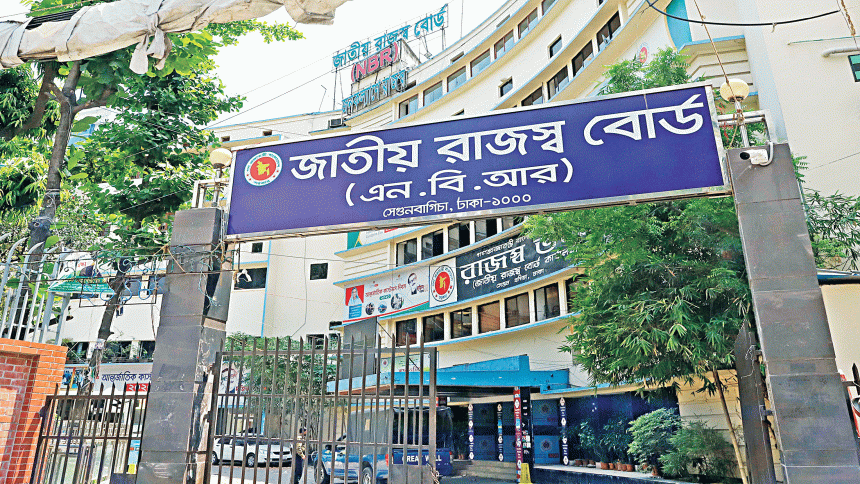Dilemma of VAT registration of non-resident entities and their VAT agents

The government has introduced Value Added Tax and Supplementary Duty Act, 2012 and Value Added Tax and Supplementary Duty Rules, 2016, which came into effect on July 1 in 2019.
With the introduction of these two new laws, non-resident entities involved in certain economic activities in Bangladesh that are considered 'supplies made in Bangladesh' have been brought within the scope of VAT, like radio or television broadcasting or telecasting services, electronic services, telecom services etc.
A non-resident is an entity/company providing services to the customers in Bangladesh without having any office or presence in Bangladesh.
To comply with the law, such non-resident entities not having permanent place of business in Bangladesh have to file online application to register themselves with the authorities concerned in Bangladesh.
The registration process requires such non-resident entities to appoint VAT agents in Bangladesh, as approved by the National Board of Revenue (NBR).
Besides, the tax administrator has appointed few individuals who can act as a VAT agent of any non-resident. In reality, most of the non-residents prefer to appoint CA firm or consultancy firms/entities in this kinds of cases.
Unfortunately, appointment of the agents and registration of non-residents under the VAT law are facing some problems now.
Practical challenges for VAT agent: As per the new law, the VAT agent shall be responsible for all activities of the non-resident it represents. The challenging chapter starts from this current legal provision. The provision is elaborated below.
"Such VAT agent of a non-resident shall bear all responsibilities and carry out all activities of the non-resident and shall be jointly and severally liable for the payment of all dues including taxes, fines, penalties, and interests that may be imposed."
This wide ruling about the agent's risk and responsibilities has made most of the prospective agents (CA firms), discouraged to register or act themselves as VAT agent of non-residents.
In our small research, we have found that the concept of such VAT agent is present in many countries of the world, but we did not find such strict risk/liability caveats anywhere.
The provision for VAT agent to bear all risks and responsibilities of the non-resident service providers is not rational.
Hence, nearly 2 years have passed from the introduction of new VAT law and the NBR is yet to receive any application for registration of VAT agents from CA firms.
It did not also receive any application from non-residents— including world-renowned multinationals—for registration.
Ideally, these agents cannot be responsible for intentional or unintentional defaults of the non-residents. It has to act based on information provided by the non-resident it is representing.
There might be cases like a delay by a non-resident in providing information leading to late in submission of monthly VAT return or delays by non-residents in payment of for their business.
Currently, all these situations will make the VAT agent a defaulter of law.
Considering such practical scenarios, the NBR or the government has to carefully review/formulate the law to make the non-resident taxpayer defaulter, not the agent.
Obstacles to registration of non-residents: Bangladesh is going through a digital transformation in all areas of the country. It has made both tax and VAT registrations possible through online. These are considered to be the most successful online platforms of the government by many critics.
However, non-residents' online VAT registration part is still not operational which is not desirable. It is pertinent to note here that manual registration is also not possible.
Here the chemistry is very strange. While new VAT act has become effective from July 2019 and the NBR is desperately looking for VAT revenues from non-residents, but unfortunately online platform for registration of non-residents is yet to be operational.
It sounds like a daydream to expect VAT collection from non-resident entities while the online VAT registration system could not be made operational in nearly two years' time.
Moreover, it is not clarified that how a non-resident will pay the VAT to the government treasury as they do not have any presence or bank account in Bangladesh.
How and where the non-residents shall remit the VAT payable amount to deposit to the government treasury? No direction is there in the law/rule/statutory regulatory order regarding this. This is also creating confusion among the non-residents.
Again, as per the new VAT law it is mandatory to maintain VAT software if annual turnover exceeds Tk 5 crore.
It is not clarified whether this law is equally applicable for non-residents. If yes, how the data/information will be captured into the VAT software remains unanswered.
We expect that the NBR will take appropriate measures to remove the barriers and provide clarification on all of the above issues to make the system and processes smoothly operational.
We understand that the NBR is revisiting the VAT laws as regards to risk and responsibilities of VAT agent, which may be reflected in the next Finance Bill 2021.
We expect rational changes in the VAT law to make this more practicable and to start getting VAT revenues from non-resident entities doing business in Bangladesh.
The government is losing a huge amount of tax because of this dilemma related to the registration of non-resident entities and the work of their VAT agents.
The writer is a chartered accountant and the associate director - tax at Nurul Faruk Hasan and Co (Deloitte in Bangladesh).

 For all latest news, follow The Daily Star's Google News channel.
For all latest news, follow The Daily Star's Google News channel. 



Comments